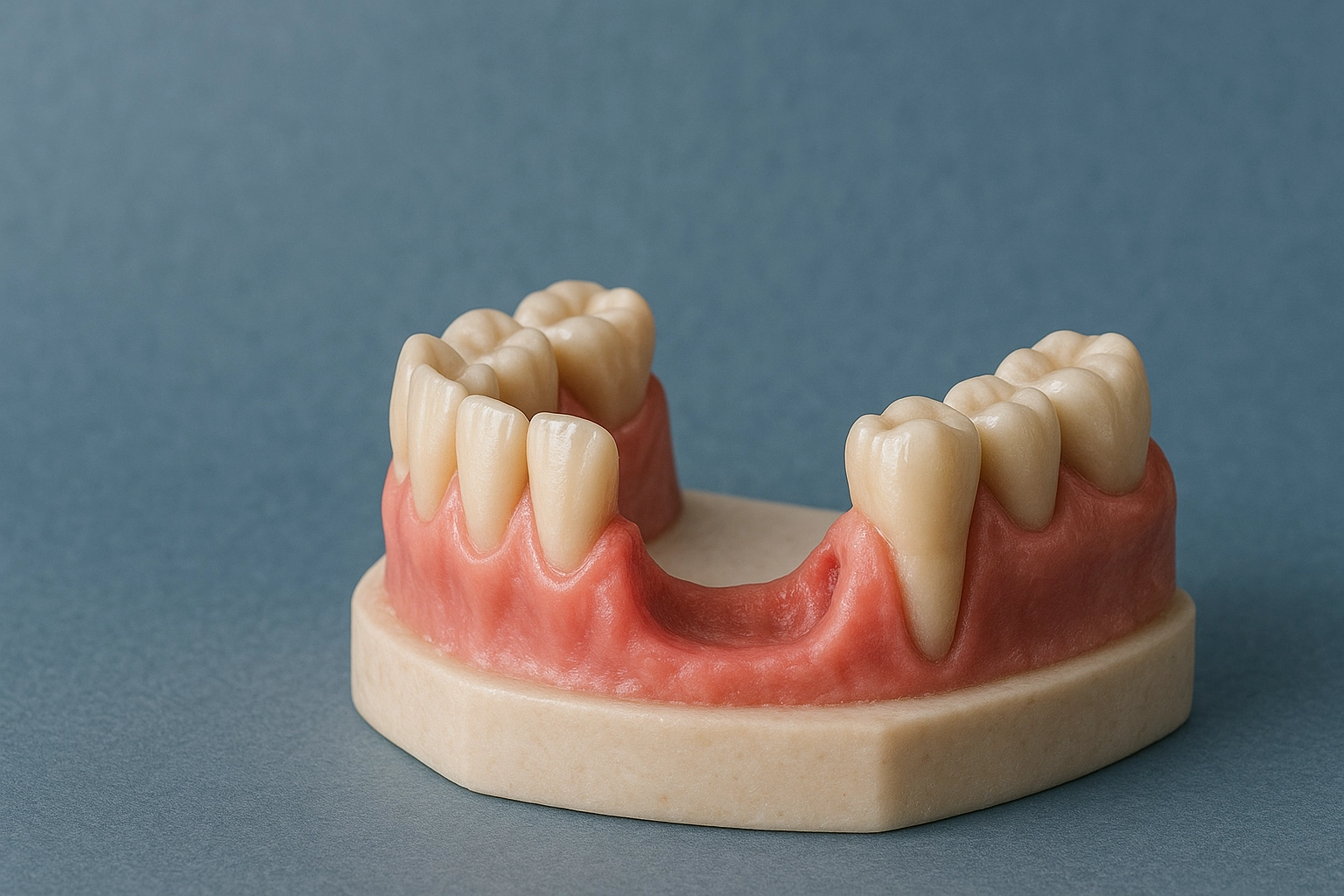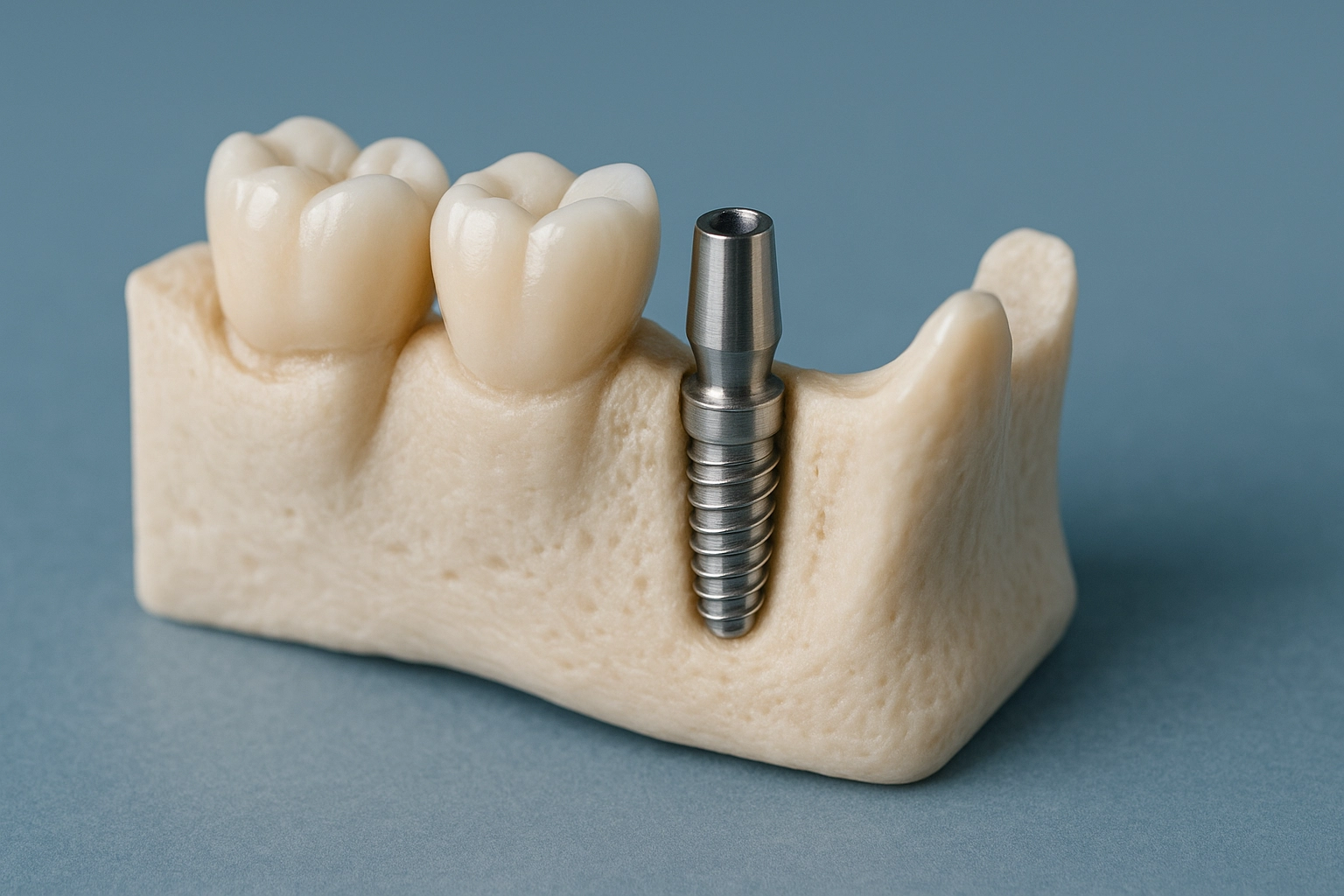
Replacing a Lower Premolar With a Dental Implant: A Complete Guide
Losing a lower premolar, particularly on the left side, can significantly impact both oral function and aesthetics. These teeth play a crucial role in chewing efficiency and maintaining the alignment of adjacent teeth. When a premolar is missing, it can lead to shifting of neighboring teeth, bite misalignment, and even bone loss in the jaw. Over time, this can affect speech, facial structure, and overall oral health.
Dental implants offer a reliable and long-term solution for replacing missing premolars. Unlike dentures or bridges, implants integrate with the jawbone, providing stability and preventing bone deterioration. At Brighton Implant Clinic, we specialize in implant dentistry, ensuring that each patient receives personalized care tailored to their specific needs.
Understanding the Lower Premolar: Anatomy and Function
The lower premolars are situated between the canine and molar teeth and are essential for grinding food. They have a unique structure that combines the tearing ability of canines and the grinding function of molars. This dual function makes them vital for efficient chewing and maintaining the balance of the dental arch.
Common reasons for the loss of a lower premolar include tooth decay, gum disease, trauma, or congenital absence. When a premolar is lost, the surrounding teeth may drift into the empty space, leading to misalignment and bite issues. Additionally, the opposing tooth may over-erupt, causing further complications.
Why Choose a Dental Implant Over Other Options?

When considering tooth replacement options, dental implants stand out for their durability and functionality. Unlike removable dentures, which can slip and cause discomfort, implants provide a stable and permanent solution. They also eliminate the need to alter adjacent healthy teeth, as is required with traditional bridges.
At Brighton Implant Clinic, we utilize advanced implant techniques to ensure optimal outcomes. Our team of experienced professionals assesses each case individually, considering factors such as bone density and overall oral health to determine the best treatment plan.
The Implant Journey: Step-by-Step Process at Brighton Implant Clinic
Embarking on the journey to replace a missing lower premolar with a dental implant involves several stages:
- Initial Consultation and Assessment: A comprehensive examination, including 3D imaging, is conducted to evaluate bone structure and plan the implant placement.
- Surgical Placement of the Implant: Under local anesthesia, the titanium implant is inserted into the jawbone at the site of the missing tooth.
- Healing and Osseointegration: Over the next few months, the implant integrates with the bone, providing a solid foundation for the artificial tooth.
- Abutment and Crown Placement: Once healing is complete, an abutment is attached to the implant, and a custom-made crown is placed, restoring the tooth's appearance and function.
Throughout this process, our team ensures patient comfort and provides detailed aftercare instructions to promote successful healing.
Materials Matter: Titanium vs. Zirconia Implants
Choosing the right material for your dental implant is crucial for long-term success. At Brighton Implant Clinic, we offer both titanium and zirconia implants:
- Titanium Implants: Known for their strength and biocompatibility, titanium implants have a long history of successful use in dentistry.
- Zirconia Implants: These metal-free implants are ideal for patients with metal sensitivities or those seeking a more natural-looking option.
Our specialists will discuss the benefits of each material and help you make an informed decision based on your specific needs and preferences.
Bone Health and Grafting: Preparing for Implant Success

Adequate bone density is essential for the stability of a dental implant. In cases where bone loss has occurred, a bone graft may be necessary to rebuild the jawbone.
This procedure involves placing bone graft material at the implant site, promoting new bone growth and providing a solid foundation for the implant.
At Brighton Implant Clinic, we utilize advanced grafting techniques to ensure optimal outcomes. Our team will assess your bone health and determine if grafting is required as part of your treatment plan.
Healing and Aftercare: Ensuring Long-Term Success
Post-operative care is vital for the success of your dental implant. Following the procedure, you may experience mild discomfort, swelling, or bruising, which can be managed with prescribed medications and cold compresses.
Aftercare Tips:
- Maintain Oral Hygiene: Gently brush and floss around the implant site to prevent infection.
- Avoid Hard Foods: Stick to a soft diet during the initial healing period to avoid putting pressure on the implant.
- Regular Check-ups: Attend all scheduled appointments to monitor healing and ensure the implant is integrating properly.
Our team will provide detailed instructions tailored to your specific case to promote successful healing and implant longevity.
Cost Considerations and Financing Options
The cost of a single dental implant in the UK typically ranges from £1,800 to £3,000, depending on various factors such as the complexity of the case and the materials used. At Brighton Implant Clinic, we offer transparent pricing and flexible financing options to make dental implants accessible to more patients.
Factors Influencing Cost:
- Diagnostic Imaging: 3D scans and X-rays.
- Surgical Procedure: Implant placement and any necessary bone grafting.
- Prosthetic Components: Abutment and crown fabrication.
Our team will provide a detailed breakdown of costs during your consultation and discuss available payment plans.
Choosing the Right Clinic: Why Brighton Implant Clinic Stands Out
Selecting the right dental clinic for your implant procedure is crucial to ensure optimal outcomes. At Brighton Implant Clinic, we pride ourselves on our expertise, state-of-the-art facilities, and patient-centered approach.
Expertise and Experience
Our clinic is led by Dr. Bruno Silva, a renowned dental implantologist with extensive experience in implant dentistry. Our team comprises skilled professionals who specialize in various aspects of dental care, ensuring comprehensive treatment plans tailored to each patient's needs.
Advanced Technology
We utilize cutting-edge technology, including 3D imaging and computer-guided implant placement, to enhance precision and predictability in our procedures. This commitment to innovation allows us to deliver high-quality results with minimal discomfort and downtime.
Patient-Centered Care
At Brighton Implant Clinic, patient satisfaction is our top priority. We offer free initial consultations to discuss treatment options and address any concerns. Our team ensures that patients are well-informed and comfortable throughout their dental journey.
With multiple branches across East and West Sussex, including Brighton, Hove, Hailsham, and Worthing, we provide accessible and convenient care for our patients. Our reputation for excellence is reflected in numerous positive reviews and testimonials from satisfied patients.
Frequently Asked Questions (FAQs)
How long does the entire dental implant process take?
The duration of the dental implant process varies depending on individual cases. Generally, it involves several stages: initial consultation, implant placement, healing period (osseointegration), and crown placement. The entire process can take anywhere from 3 to 6 months.
Is the implant procedure painful?
Most patients report minimal discomfort during the implant procedure. Local anesthesia is used to numb the area, and post-operative pain is typically manageable with over-the-counter pain relievers. Our team ensures patient comfort throughout the process.
What is the success rate of lower premolar implants?
Dental implants have a high success rate, often exceeding 95%. Success depends on factors such as bone quality, oral hygiene, and overall health. At Brighton Implant Clinic, we conduct thorough assessments to ensure the best possible outcomes.
Can I eat normally after getting an implant?
After the healing period, dental implants function like natural teeth, allowing you to eat a wide variety of foods. During the initial healing phase, it's advisable to stick to soft foods and avoid chewing on the implant site.
How do I care for my implant to ensure its longevity?
Maintaining good oral hygiene is essential for the longevity of your dental implant. Regular brushing, flossing, and dental check-ups help prevent complications. Avoiding smoking and excessive alcohol consumption also contributes to implant success.
Conclusion: Taking the Next Step Towards a Complete Smile
Replacing a missing lower premolar with a dental implant is a significant decision that can enhance your oral health, functionality, and confidence. At Brighton Implant Clinic, we are committed to providing exceptional care and delivering results that exceed expectations.
If you're considering dental implant treatment, we invite you to schedule a free consultation with our experienced team. Let us help you restore your smile and improve your quality of life.










